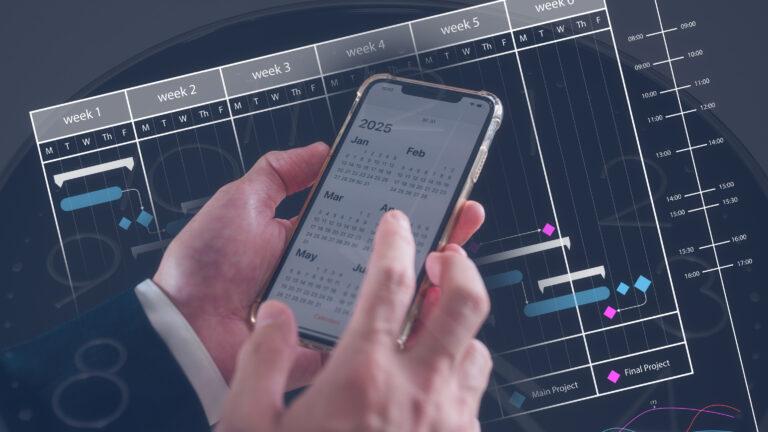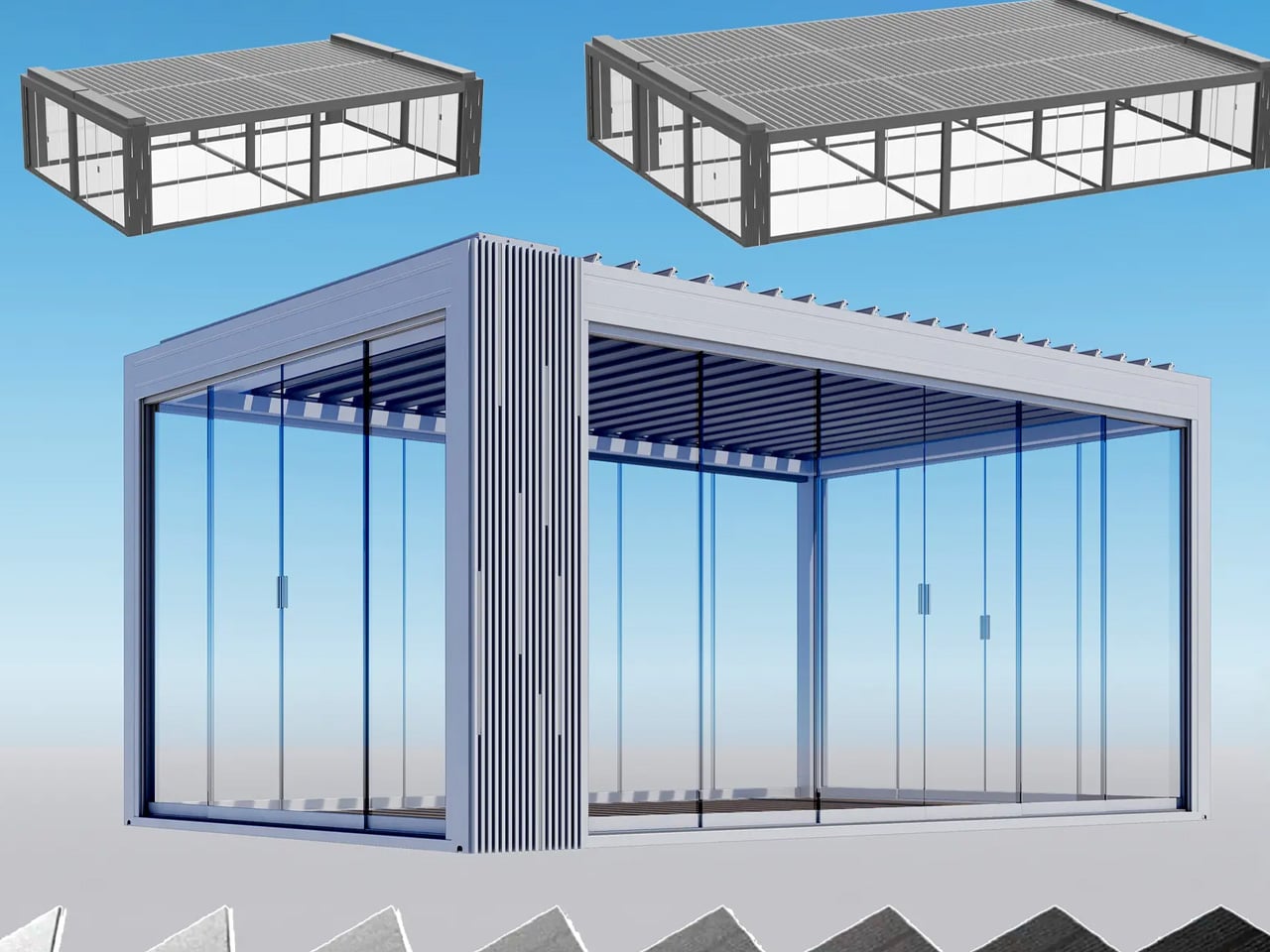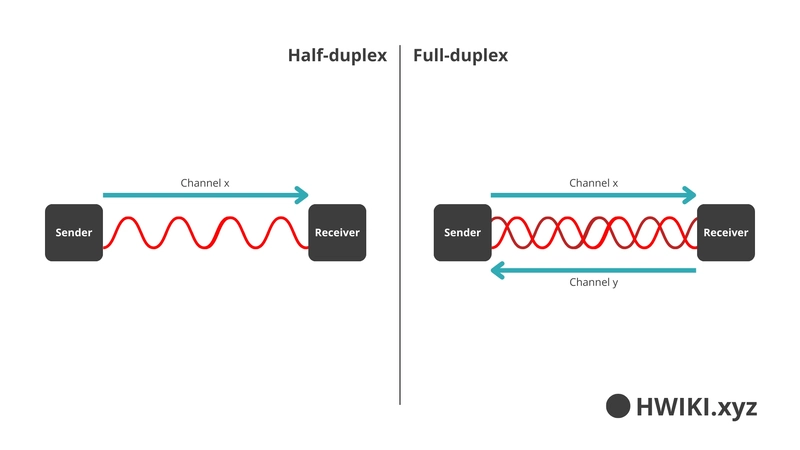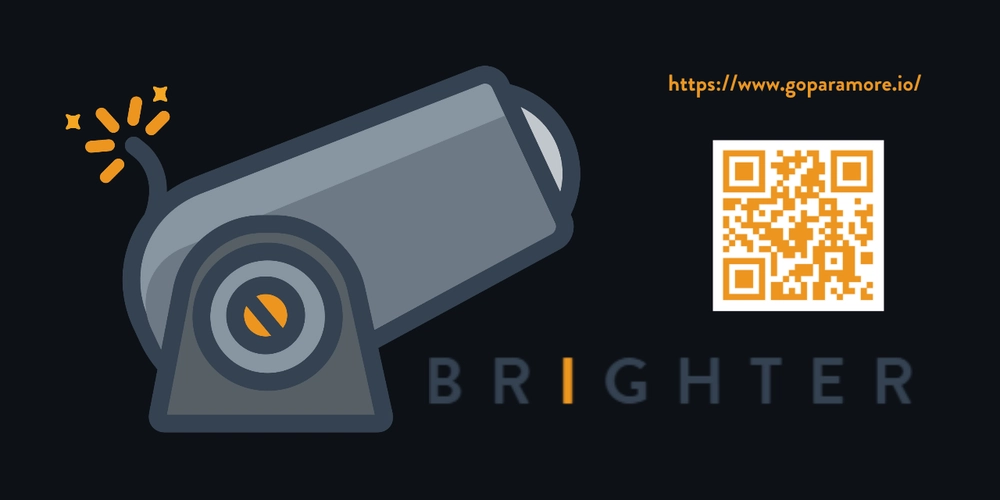ERP: A Small Word with Big Services Behind It
ERP. Just three letters — but behind them lies a powerful engine that keeps modern businesses running like clockwork. From startups building their first product to global enterprises managing multi-country operations, ERP software is the silent force orchestrating everything from inventory to invoices. It's not just a tool — it's a business management software that aligns your departments, automates repetitive tasks, and gives you real-time visibility into what truly matters. Whether you’re managing sales pipelines or streamlining production workflows, an ERP system does far more than you might expect from such a small acronym. This blog pulls back the curtain on Enterprise Resource Planning to reveal the massive network of services it provides — and why choosing the right ERP solution could be the smartest decision your business makes this year. What is ERP? A Digital Backbone for Modern Businesses ERP, or Enterprise Resource Planning, is not just another buzzword in the tech space — it’s the digital backbone of every efficient, growth-ready organization. At its core, ERP software integrates multiple business functions into a single, centralized platform that offers complete visibility and control over your operations. Instead of juggling separate tools for accounting, HR, inventory, sales, and procurement, an ERP system brings them all under one roof. Think of it as your command center — where data flows seamlessly across departments, where insights are generated in real-time, and where decisions are backed by facts, not guesswork. Originally developed for manufacturing companies, today’s ERP solutions have evolved to serve virtually every industry — from retail and healthcare to logistics and services. Whether on-premise or cloud-based, the goal remains the same: streamline operations, reduce costs, and enhance productivity. In short, ERP software doesn’t just manage data. It empowers businesses to act faster, scale smarter, and lead with clarity. Core Services Behind ERP: More Than Just Modules Behind the sleek dashboard of an ERP system lies a robust ecosystem of services designed to manage every moving part of your business. This isn’t about adding convenience — it’s about redefining how you operate. Here are the key services an Enterprise Resource Planning system typically includes: Finance & Accounting Automate billing, monitor cash flow, track expenses, and ensure compliance with financial regulations. ERP brings real-time reporting tools and financial forecasting into one unified interface. Human Resource Management From recruitment and payroll to performance tracking and leave management, ERP software centralizes your HR functions and supports a happier, more efficient workforce. Inventory & Supply Chain Management Keep your supply chain agile. ERP tracks stock levels, manages reordering, monitors supplier performance, and ensures you're never overstocked or understocked. Sales & Customer Relationship Management (CRM) Connect your leads, sales funnel, and customer service into one view. With CRM modules, your sales team can convert faster, and your service team can respond smarter. Production & Manufacturing Plan resources, schedule jobs, manage quality, and reduce waste — all through the ERP system’s production control tools designed for manufacturers of all sizes. Procurement & Vendor Management Digitize purchase orders, track vendor performance, and manage supplier relationships efficiently. Procurement becomes a strategic, data-driven process. Project Management Budget tracking, timeline control, resource allocation — everything you need to run successful projects from initiation to delivery. Business Intelligence & Analytics No more guesswork. With integrated ERP dashboards and analytics, decision-makers gain real-time visibility and actionable insights across all departments. These services aren’t add-ons — they’re the core of how your business moves forward. That’s what makes ERP solutions more than software; they’re engines of transformation. Industry-Specific ERP Capabilities: Tailored Intelligence for Every Sector One-size-fits-all doesn’t work when you’re managing a hospital, running a factory, or operating a retail chain. That’s why modern ERP solutions are built to be industry-specific — offering features and workflows tailored to the unique challenges of your business vertical. Let’s explore how ERP software adapts across key industries: Manufacturing From raw material planning to final product dispatch, ERP for manufacturing offers production scheduling, batch tracking, and quality control — all while minimizing downtime and waste. Retail & eCommerce Manage inventory across multiple outlets, track customer purchases in real time, and streamline billing with integrated Point of Sale (POS) modules. A retail-ready ERP system ensures consistent customer experiences both in-store and online. Healthcare Hospital management, patie
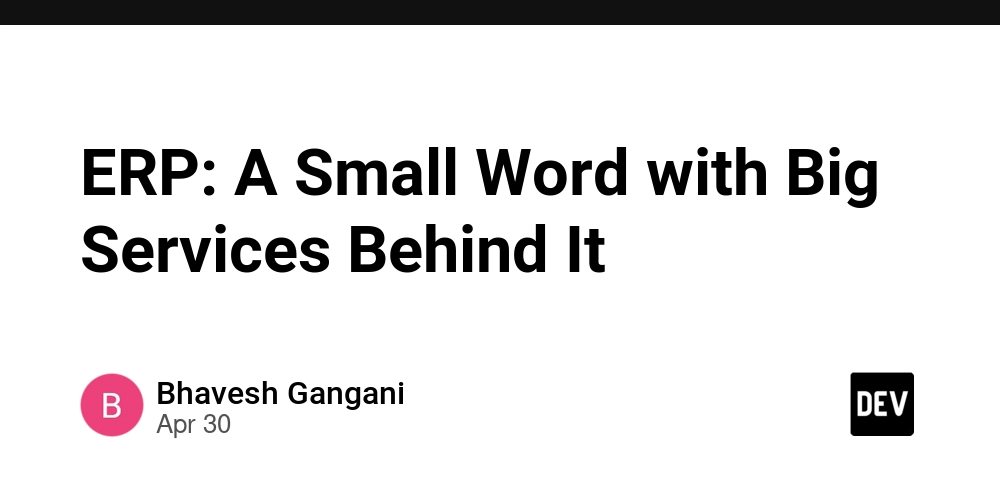
ERP. Just three letters — but behind them lies a powerful engine that keeps modern businesses running like clockwork. From startups building their first product to global enterprises managing multi-country operations, ERP software is the silent force orchestrating everything from inventory to invoices.
It's not just a tool — it's a business management software that aligns your departments, automates repetitive tasks, and gives you real-time visibility into what truly matters.
Whether you’re managing sales pipelines or streamlining production workflows, an ERP system does far more than you might expect from such a small acronym.
This blog pulls back the curtain on Enterprise Resource Planning to reveal the massive network of services it provides — and why choosing the right ERP solution could be the smartest decision your business makes this year.
What is ERP? A Digital Backbone for Modern Businesses
ERP, or Enterprise Resource Planning, is not just another buzzword in the tech space — it’s the digital backbone of every efficient, growth-ready organization.
At its core, ERP software integrates multiple business functions into a single, centralized platform that offers complete visibility and control over your operations.
Instead of juggling separate tools for accounting, HR, inventory, sales, and procurement, an ERP system brings them all under one roof.
Think of it as your command center — where data flows seamlessly across departments, where insights are generated in real-time, and where decisions are backed by facts, not guesswork.
Originally developed for manufacturing companies, today’s ERP solutions have evolved to serve virtually every industry — from retail and healthcare to logistics and services.
Whether on-premise or cloud-based, the goal remains the same: streamline operations, reduce costs, and enhance productivity.
In short, ERP software doesn’t just manage data. It empowers businesses to act faster, scale smarter, and lead with clarity.
Core Services Behind ERP: More Than Just Modules
Behind the sleek dashboard of an ERP system lies a robust ecosystem of services designed to manage every moving part of your business. This isn’t about adding convenience — it’s about redefining how you operate.
Here are the key services an Enterprise Resource Planning system typically includes:
Finance & Accounting
Automate billing, monitor cash flow, track expenses, and ensure compliance with financial regulations. ERP brings real-time reporting tools and financial forecasting into one unified interface.
Human Resource Management
From recruitment and payroll to performance tracking and leave management, ERP software centralizes your HR functions and supports a happier, more efficient workforce.
Inventory & Supply Chain Management
Keep your supply chain agile. ERP tracks stock levels, manages reordering, monitors supplier performance, and ensures you're never overstocked or understocked.
Sales & Customer Relationship Management (CRM)
Connect your leads, sales funnel, and customer service into one view. With CRM modules, your sales team can convert faster, and your service team can respond smarter.
Production & Manufacturing
Plan resources, schedule jobs, manage quality, and reduce waste — all through the ERP system’s production control tools designed for manufacturers of all sizes.
Procurement & Vendor Management
Digitize purchase orders, track vendor performance, and manage supplier relationships efficiently. Procurement becomes a strategic, data-driven process.
Project Management
Budget tracking, timeline control, resource allocation — everything you need to run successful projects from initiation to delivery.
Business Intelligence & Analytics
No more guesswork. With integrated ERP dashboards and analytics, decision-makers gain real-time visibility and actionable insights across all departments.
These services aren’t add-ons — they’re the core of how your business moves forward. That’s what makes ERP solutions more than software; they’re engines of transformation.
Industry-Specific ERP Capabilities: Tailored Intelligence for Every Sector
One-size-fits-all doesn’t work when you’re managing a hospital, running a factory, or operating a retail chain. That’s why modern ERP solutions are built to be industry-specific — offering features and workflows tailored to the unique challenges of your business vertical.
Let’s explore how ERP software adapts across key industries:
Manufacturing
From raw material planning to final product dispatch, ERP for manufacturing offers production scheduling, batch tracking, and quality control — all while minimizing downtime and waste.
Retail & eCommerce
Manage inventory across multiple outlets, track customer purchases in real time, and streamline billing with integrated Point of Sale (POS) modules. A retail-ready ERP system ensures consistent customer experiences both in-store and online.
Healthcare
Hospital management, patient data, billing, appointment scheduling — everything is unified. ERP software helps healthcare providers deliver efficient, accurate, and timely care.
Logistics & Distribution
With supply chain visibility, route optimization, warehouse tracking, and delivery automation, logistics-focused ERP empowers you to move faster and smarter.
Education
Universities and schools use ERP for managing admissions, student records, timetables, and fee structures. It transforms outdated administrative systems into efficient digital platforms.
Service Industry
Project timelines, billing cycles, resource planning, and client collaboration — ERP systems streamline service-based business operations and drive profitability.
By choosing an industry-specific ERP, you're not just investing in software — you're gaining a system that understands your business and scales with it.
Benefits of Implementing ERP: Small Word, Massive Impact
Investing in an ERP system is more than a software upgrade — it’s a full-scale business transformation. Whether you're a startup aiming to scale or an enterprise looking to optimize, Enterprise Resource Planning delivers measurable benefits that impact your bottom line and daily operations.
Centralized Business Data
No more siloed departments. ERP unifies your data across finance, HR, inventory, and sales, allowing for seamless collaboration and better decision-making.
Workflow Automation
Routine tasks like invoicing, payroll, stock updates, and order processing can be automated. This reduces human error, saves time, and lets your team focus on strategic goals.
Real-Time Insights
With built-in reporting tools and dashboards, an ERP gives you real-time visibility into your business performance. Make data-driven decisions without the wait.
Improved Productivity
By integrating all your processes into one system, employees no longer waste time switching tools or duplicating data. ERP software makes your entire organization more efficient.
Cost Control & Forecasting
Monitor budgets, forecast expenses, and identify cost leakages before they spiral. With ERP, financial control is sharper and more proactive.
Regulatory Compliance
Whether it's tax rules, industry regulations, or internal audit trails, modern ERP solutions help you stay compliant — and ready for inspection at any time.
Scalability
As your business grows, your ERP grows with it. Add new users, modules, or even entire business units — without rethinking your core processes.
In short, the right ERP solution doesn’t just support your business — it elevates it.
Why Cloud ERP is Gaining Popularity: Flexibility, Scalability, and Innovation
Cloud ERP is rapidly becoming the go-to solution for businesses across industries. The traditional on-premise ERP systems — while effective — are no longer as agile or cost-effective in today’s fast-paced business environment.
Scalability Without Limits
One of the greatest advantages of cloud-based ERP solutions is their scalability. Whether you're a small business or a growing enterprise, cloud ERP allows you to scale your operations easily. As your business expands, you can add new features, increase your user base, or integrate with external systems — all without worrying about hardware upgrades or excessive costs.
Access Anywhere, Anytime
Cloud ERP offers real-time data access from anywhere, whether you're in the office, working remotely, or on the go. This means better collaboration between teams, faster decision-making, and the ability to keep the business running smoothly regardless of location.
Lower Upfront Costs
Unlike on-premise solutions that require expensive hardware and installation fees, cloud ERP software operates on a subscription model. This significantly reduces initial costs and allows businesses to allocate resources more effectively.
Automatic Updates and Security
With cloud ERP, you always have access to the latest features, security patches, and system upgrades. Providers handle all the heavy lifting, ensuring that your business is always running on the most up-to-date and secure version of the software.
Innovation at Your Fingertips
Cloud ERP enables you to tap into cutting-edge innovations like AI-powered analytics, automation, and machine learning — features that were once only available to large enterprises. Now, even small businesses can harness these technologies to enhance operational efficiency.
The cloud-based ERP model is no longer just a trend. It’s a strategic move that positions businesses to stay competitive, adaptable, and future-proof.
How to Choose the Right ERP System: Making the Smart Selection
Choosing the right ERP software can feel like a daunting task, especially with the vast array of options available in the market.
The right choice, however, can transform your business operations, drive growth, and significantly boost productivity. So, how do you ensure you’re making the smart decision?
Define Your Business Needs
Before you start evaluating different ERP solutions, take time to clearly define your business needs. Are you looking for HR management capabilities, inventory tracking, or a robust CRM system? A deep understanding of your operational challenges will guide you toward the most suitable system for your business model.
Consider Industry-Specific Features
Not all businesses are created equal. Look for an ERP system tailored to your industry.
Whether you're in manufacturing, retail, or healthcare, opt for a solution that understands the specific requirements of your sector and provides the relevant modules for streamlined operations.
User-Friendliness
The effectiveness of an ERP system lies in how well your team can use it. A system that’s too complex or difficult to navigate will create friction rather than improve efficiency.
Choose software with an intuitive interface and robust training resources to ensure quick adoption by your team.
Scalability and Flexibility
Consider the future of your business. Does the ERP system have the ability to scale as you grow? Can you add new features or modules without starting from scratch? Opt for an ERP that can adapt to your evolving needs, whether it’s through cloud-based upgrades or additional functionalities.
Integration Capabilities
Ensure that your chosen ERP integrates seamlessly with other systems you may already use.
Whether it’s your existing CRM software, email marketing platform, or eCommerce tools, smooth integration will enhance the ERP's value and reduce disruption.
Vendor Support and Community
Strong support from the ERP provider is crucial. Make sure the vendor offers 24/7 customer service, regular system updates, and access to a vibrant user community.
This ensures that you can resolve issues promptly and keep your system running smoothly.
Cost-Effectiveness
While it’s important not to compromise on quality, cost is still a crucial factor.
Weigh the benefits of the ERP solution against the price tag, including upfront costs, implementation fees, and ongoing maintenance. Ensure the ROI justifies the expense.
Choosing the right ERP system requires a thoughtful, strategic approach. With careful consideration of your business’s needs, future growth, and industry demands, the right system will empower your business to operate more efficiently and effectively than ever before.
*Conclusion: *
ERP systems have become essential for businesses of all sizes, offering a centralized solution to streamline operations, improve efficiency, and drive growth. Whether you’re in manufacturing, retail, or services, ERP software connects departments, automates processes, and provides real-time insights for smarter decision-making.
With the flexibility of cloud-based ERP, the power of automation, and the benefits of industry-specific solutions, implementing the right ERP system can transform your business. It’s not just about managing data — it’s about unlocking your business’s full potential and staying ahead of the competition.
Embrace ERP today, and position your business for long-term success.















































